Violence plagued the small city of Wewoka. Some don't want to talk about it. Others are afraid.
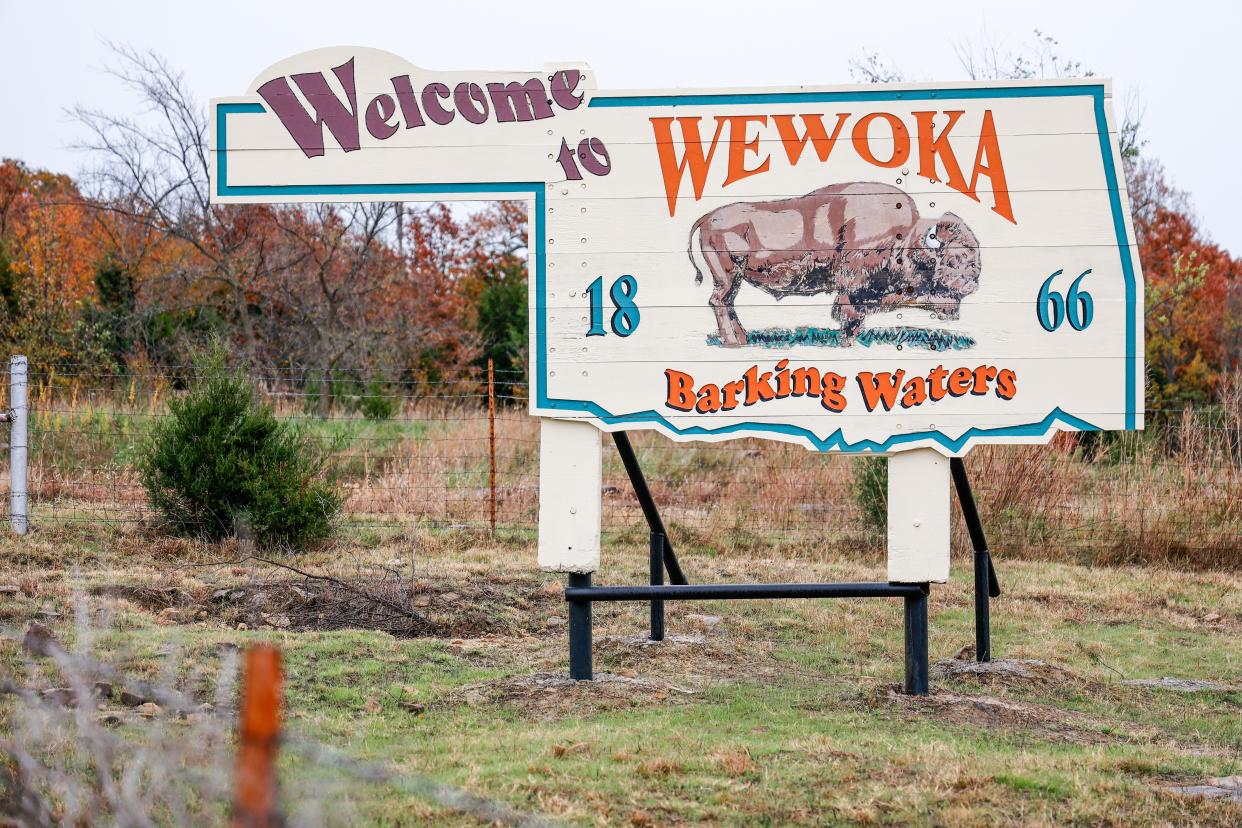
WEWOKA — On an overcast Thursday morning in a parking lot off State Highway 56 in this small city about 70 miles southeast of Oklahoma City, two police cars parked parallel to each other with each vehicle facing the opposite direction so the officers could talk to one another from their driver seats.
About a mile south at a convenience store a young man was shot dead in September.
About a block north in October gunfire erupted at a Family Dollar store. The same month a house was set ablaze.
The violence, which included a surge in reports of gunfire, was met mostly with silence by local authorities. Community events were canceled, and residents were left to wonder what was happening to their bucolic community of about 3,200 people, which is the capital of the Seminole Nation of Oklahoma, a federally recognized Indigenous tribe.
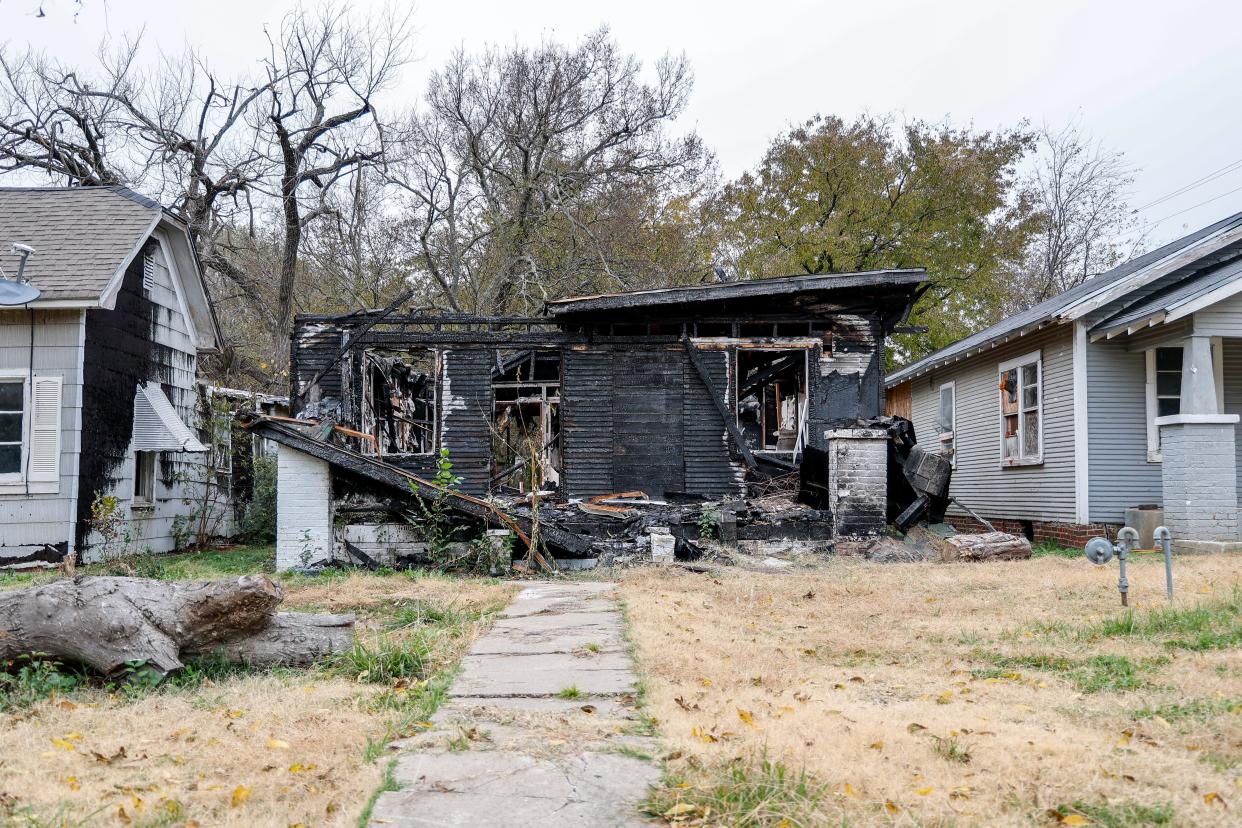
Rumors swirled.
On Oct. 27, the Seminole Nation Lighthorse Police Department announced on social media that “several major crimes” were gang-related.
“The two gangs are fighting each other,” the department announced. “Unfortunately, the violence has escalated and has been brought into local businesses causing concern within the community.”
In response, one person wrote:
“Stay locked and loaded.”
Another person wrote:
“Thank you for the update. Please continue to let us townspeople know what’s going on. It’s BS that our local law enforcement are not communicating with anyone and locking their doors to everyone trying to get information!”
Within a week, on Nov. 2, the district attorney, flanked by leaders from the Wewoka Police Department, the Seminole Nation Lighthorse Police and the Seminole County Sheriff's Office, announced the arrests of six people suspected of being involved in the rash of violence.
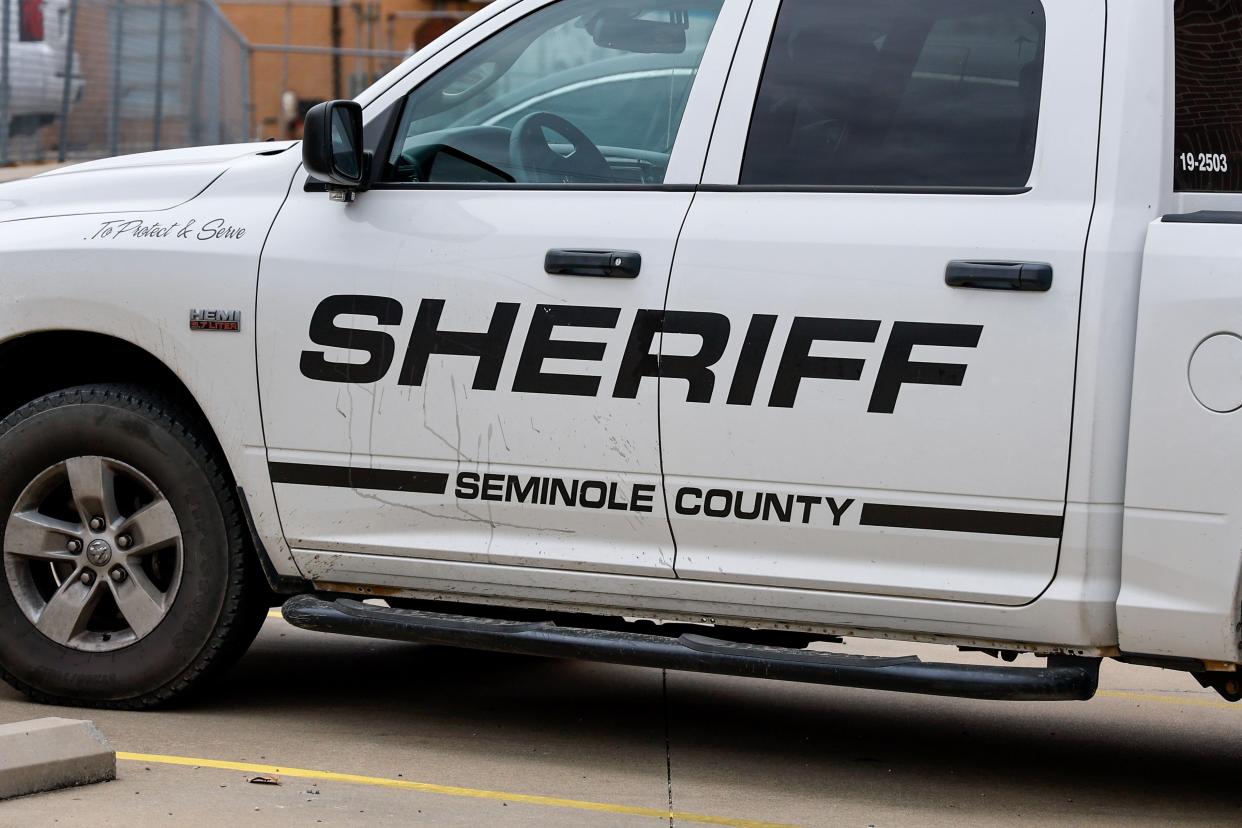
Still, on that Thursday in Wewoka, people in town disagreed on the extent of the violence, and what was its cause. It was family and not gang-related, some said. Others named two gangs said to be involved.
Some were dismissive. Others, expressing fear, issued warnings. But firm opinions were prefaced or followed by sheepish requests to not be named for this story.
Indeed, without the relative safety of social media, and days removed from the excitement of news reporters and their cameras descending on the city, it appeared that no one was willing to be identified for comment on the violence, and the police department’s apparent lack of transparency.
“Wewoka is a wonderful place,” one woman said inside an office. “They’re blowing it out of proportion.”
“We’re scared,” another woman said on her porch, pointing toward a house where gang members are said to live.
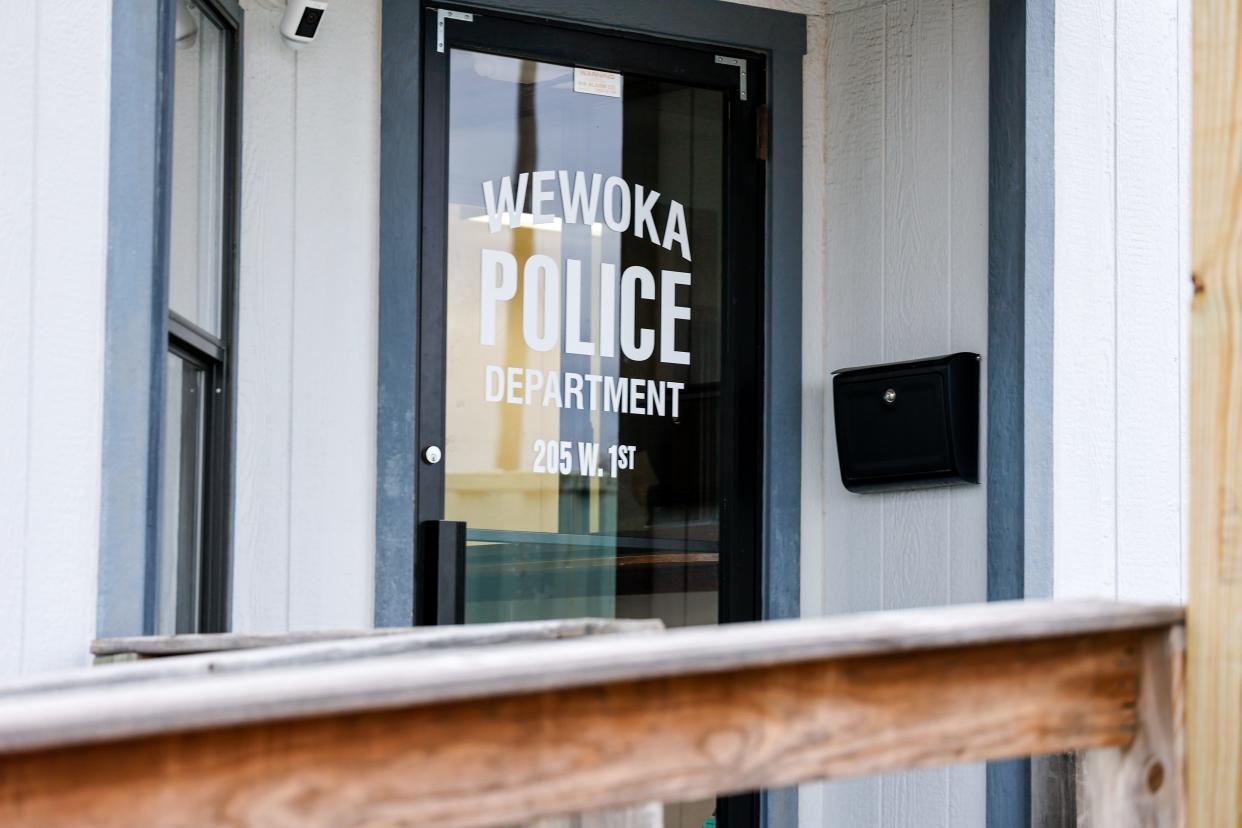
A third woman looked out the window of the store she runs, raised her hands and joked:
“We used to fight with knives. Now we’ve got guns, and that’s not Wewoka’s fault.”
A youth programs director inside a gym said he couldn’t talk. That was the higher-ups' job.
A young man sitting on a porch took a drag from a plastic-tipped cigar and didn’t offer much about the recent violence, except to say his sister was afraid.
A group of elderly women eating pie in a church kitchen stared blankly in response to a question about Wewoka’s troubles. One said the church was looking for a new pastor.
More: 'Major crimes' being investigated in Wewoka. Here's what we know
But inside a tavern on the outskirts of the city, one woman shook her head at questions about the shootings, and the Wewoka Police Department, which temporarily operates out of a trailer with a locked glass door that no one answered on that Thursday morning.
Jan Davis, the 74-year-old proprietor of the Stardust Bar, offered good luck in getting quick police responses. She said she saw two police vehicles drag race outside her bar once.
“They don’t do anything,” Davis said. “DUIs and public drunks, that’s all they care about.”
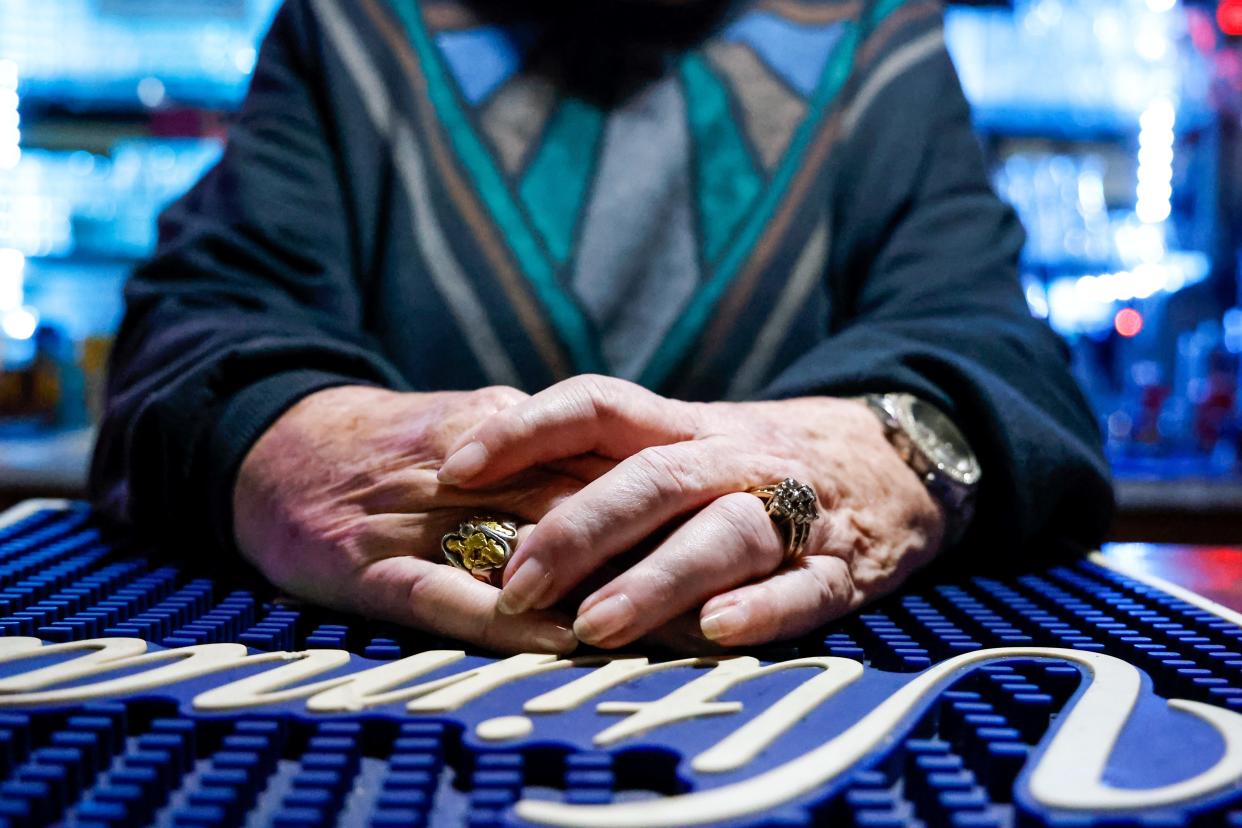
Wewoka: 'A most inspiring sight'
In Seminole County, Wewoka rests at the junction of State Highway 56 and U.S. 270.
In 1849, the city began as a settlement founded by John Horse, a Seminole freedman nicknamed Gopher John, and other Seminole slaves.
In 1855, the Florida Seminoles established their capital in Wewoka — the Seminole word for "Barking Waters" — because of the noise made by nearby falls.
In 1866, after the Civil War, the government selected Elijah J. Brown, a white trader, to lead Seminole refugees from Kansas to the Indian Territory. They settled near Wewoka.
A landmark still standing on the courthouse square is the Whipping Tree, where criminals were tied and whipped.
Downtown, the Seminole County Courthouse is a two-story, red-colored brick monument to livelier days in the area, when an oil boom a century ago ignited a housing boom during which workers and their families came to Wewoka seeking prosperity.
Brick, steel parts and garment production companies thrived in a small city known for the Wewoka Switch at the Rock Island train depot, where trains changed tracks.
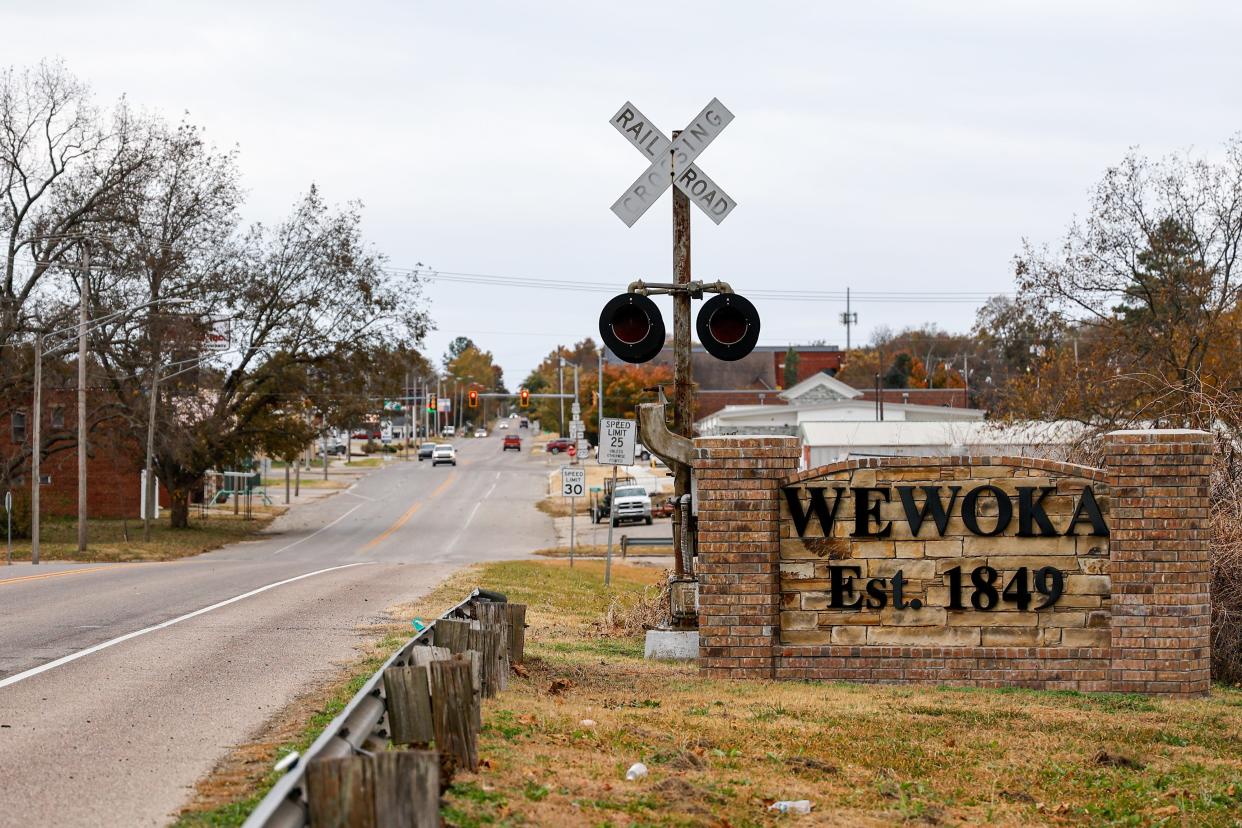
President Harry S. Truman once made a campaign whistle stop there, saying “all day we’ve been traveling through the rich oil fields and farms of your state and it’s a most inspiring sight.”
The area became known for lost freight bills, poor telephone service and heavy shipping congestion, so much so that “caught in a Wewoka Switch” became a common phrase.
Downtown is quieter now. A testament to time and evolving industry, some of the stores, shops and offices where business owners work today are bright spots among shuttered buildings and empty lots.
City Manager Mark Mosley told The Oklahoman that two crucial moments in recent decades shaped Wewoka commerce for the worse. The first was when city leaders turned Walmart away from building here. The second, Mosley said, was the North American Free Trade Agreement in 1992.
“NAFTA took 500 jobs out of Wewoka,” Mosley said.
More: Wewoka police arrest 6 amid escalating gang rivalry
City leaders now are looking to fill empty lots downtown with new structures. The buildings in place will likely be filled with “mom-and-pop” businesses, Mosley said.
“We’re taking a look at what buildings we have and what our needs are,” he said.
Meanwhile, Mosley said, steel and tank companies provide good jobs for residents.
Mosley praised the community for supporting bond measures that have improved infrastructure and new construction like the middle school.
The local Boys & Girls Club is undergoing a remodel while clergy members, along with other volunteers are working to mentor young people and encourage them in education and the trades, Mosley said.
“We’re trying to change the narrative,” he said. “We’re trying to convince these kids there’s a better life out there. We are a poverty town, but with a little guidance, I think our kids can see a better way of life than what they imagine.”
Indeed, Wewoka is a proud community that looks forward while celebrating its past. New businesses are applauded. The city rallies around the Wewoka High School football team. Eateries along the main road teem with locals. The Seminole Nation Museum remains a cultural staple.
Wewoka hosts an annual Sorghum Days Festival. This year, however, the festival was canceled, touching off more controversy in town.
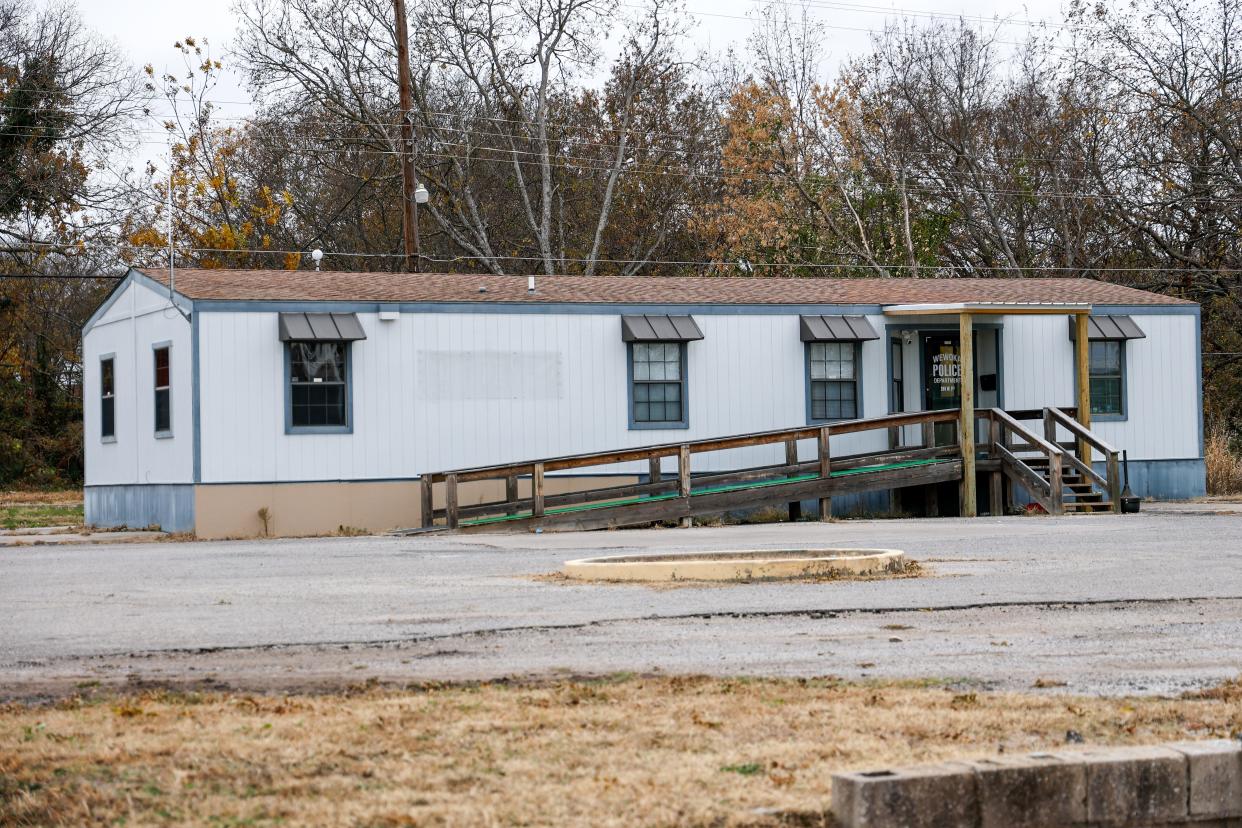
After schools had switched to virtual learning, a high school football game moved out of town and a candlelight vigil held by at least one church as the recent violence roiled the community, festival organizers announced on social media that the festival would not happen this year because of bad weather.
Some, including one woman who did not want to be named in this story, took the cancellation announcement — and the reason given — at face value.
Others, like Davis, and regulars at her Stardust Bar, speculated that the festival closure was over public safety concerns.
“They said ‘it’s weather,’ which we all know is not true.” she said.
Wewoka police chief responds to ‘gang war’ reports
Wewoka Police Chief Keith Barkhimer politely introduced himself over the phone when he returned a message from The Oklahoman.
Not thrilled with the brief but heavy media presence in town recently, Barkhimer recalled reading at least one report online that made it seem like “roving bandits” were on the streets of Wewoka.
“That’s not what was going on,” he said.
Barkhimer said the community’s fear shouldn’t be downplayed, but Wewoka was safe before the shootings and will be again. The violence was between two families, with some claiming gang affiliation, he said.
The police department employs seven officers, including himself, Barkhimer said. Work is being done on the department’s permanent station, so officers are operating out of the trailer, he said. The door is locked to prevent unauthorized people from walking in and out, Barkhimer said.
If no one answers the door, that likely means officers are out in the community, he said.
“If we gave the impression that we weren’t being as transparent as we could, we apologize for that,” Barkhimer said. “But we had some serious investigations that we didn’t want to jeopardize.”
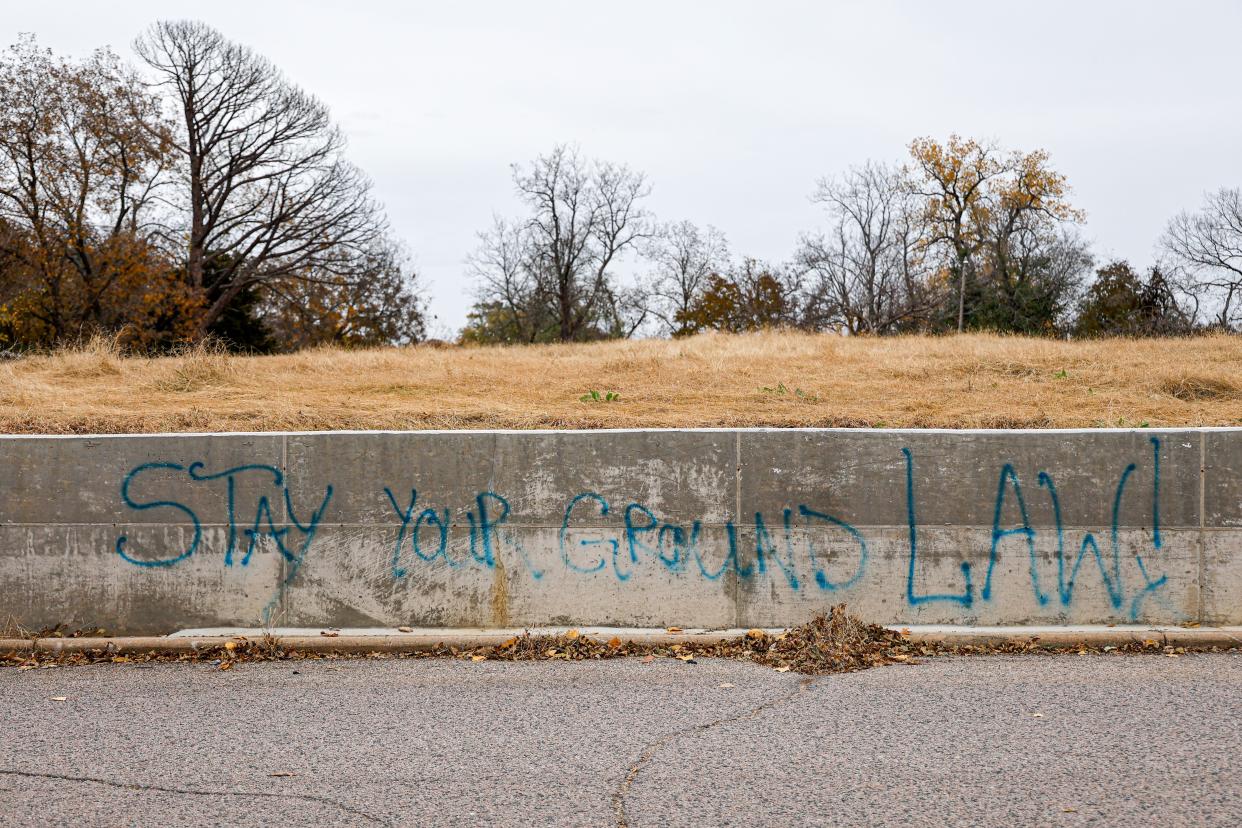
District attorney talks about stepped-up enforcement in Wewoka
Two police cars remained parked in a lot just off State Highway 56. The area’s top prosecutor said it was no coincidence that police are visible on the main route through Wewoka.
“They need to know we’re out there, not just on a Friday or Saturday night,” said Erik Johnson, district attorney for Seminole, Pontotoc and Hughes counties.
Johnson was out of town but quickly returned a phone call seeking comment. It was Johnson who helped bring in state and federal authorities to assist in making the recent arrests and quelling the violence. The surge in shootings reminded him of a crime wave here decades ago.
“Obviously, we’ve had several instances of gang violence in our small town of Wewoka,” he said. “Wewoka has had somewhat of a history of this same thing in the ‘80s and ‘90s. I took office in January, and I’m not going to tolerate it. I’m going to make it exceedingly difficult for these individuals to drive around with guns and do gunplay.”
Meanwhile, Davis prepared for another night at the Stardust Bar. Clean and empty ashtrays rested on tables. Two pool tables stood near a wall. A couple of regulars talked about Sooner football and pondered the team’s impending move to the SEC.
Standing behind the bar, Davis said she wasn’t surprised by folks in town not wanting to speak openly about what happened in Wewoka recently. She zipped her lips.
“It’s a closed mouth there,” Davis said. “Most of the people who come to the bar? They talk.”
This article originally appeared on Oklahoman: How Wewoka residents, police have responded to uptick in violent crime
